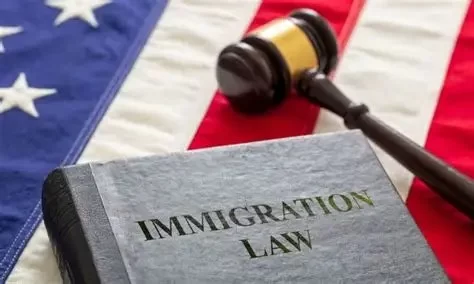1. Why Business Visa Applications Are Complex
Business visa applications are a vital part of immigration for entrepreneurs, investors, and workers seeking opportunities abroad. However, the process can be incredibly complicated. The U.S. immigration system has specific requirements that must be met, and even small mistakes can delay or derail an application. For anyone seeking to enter the U.S. for business purposes, understanding the complex rules, regulations, and documentation is crucial for success.
1.1 Understanding the Different Business Visa Types
There are several types of business visas available, such as the E-2 Investor Visa, L-1 Intra-Company Transfer Visa, and the B-1 Business Visitor Visa. Each type has its own specific requirements, which can make choosing the correct visa and understanding its nuances challenging. A business immigration lawyer helps applicants navigate this complexity, ensuring the right visa type is selected based on the applicant’s goals and situation.
1.2 Documentation and Evidence Requirements
Business visa applications require a significant amount of documentation, including business plans, financial statements, and evidence of the applicant’s professional background. Gathering the necessary documentation and ensuring it meets the specific criteria can be overwhelming without proper guidance.
2. The Role of Immigration Lawyers in Business Visa Applications
Immigration lawyers play a critical role in guiding applicants through the business visa process. These professionals are well-versed in immigration law and can provide the legal expertise needed to ensure the application process goes smoothly. Immigration lawyers assist with everything from gathering necessary documentation to handling legal requirements and communication with U.S. Citizenship and Immigration Services (USCIS).
2.1 Expertise in Navigating Complex Regulations
The rules and regulations surrounding business visas can be difficult to understand. Immigration lawyers have the expertise to explain the complexities and ensure that applications meet all legal requirements. They can help applicants avoid mistakes that could lead to delays, denials, or rejections.
2.2 Guidance Through the Visa Process
From determining eligibility to submitting the final application, an immigration lawyer guides their clients at every stage of the process. They provide support in preparing documents, submitting evidence, and ensuring all deadlines are met. Their assistance helps ensure that business visa applications are complete, accurate, and timely.
3. How Immigration Lawyers Assist in Business Visa Applications
Immigration lawyers help applicants in several important ways when applying for a business visa:
3.1 Assessing Eligibility
The first step in applying for a business visa is determining if you are eligible for one. Immigration lawyers will evaluate your business situation, goals, and background to identify which visa category best fits your needs. This initial assessment can save time and prevent submitting an incorrect visa application.
3.2 Preparing and Organizing Documents
Document preparation is a crucial part of the business visa application process. Immigration lawyers help applicants gather, organize, and submit the necessary paperwork, including financial statements, business plans, and professional credentials. They ensure that all required documents are presented in the correct format and meet the immigration standards.
3.3 Handling Communication with USCIS
Once the application is submitted, immigration lawyers handle communication with USCIS and other relevant authorities. This includes responding to any requests for additional information, preparing for interviews, and addressing any legal challenges that may arise during the processing of the visa application.
4. Steps Immigration Lawyers Take to Help with Business Visas
Here’s an overview of the key steps that immigration lawyers typically take to assist clients with business visa applications:
4.1 Initial Consultation
The process begins with an initial consultation, during which the immigration lawyer reviews the applicant's business plan, goals, and background. This helps the lawyer understand which visa is most suitable and explains the necessary steps for the application process.
4.2 Document Review and Preparation
The next step involves reviewing and preparing all necessary documentation. Immigration lawyers assist in drafting a detailed business plan, gathering financial records, and ensuring that all required evidence is included in the application package.
4.3 Submitting the Application and Follow-up
After the application is submitted, the lawyer monitors its progress, communicating with USCIS and other authorities as necessary. They ensure that all deadlines are met, and they work to resolve any issues that may arise, such as requests for additional evidence or interviews.
5. Real-Life Example: Successful Business Visa Application with a Lawyer
In one recent case, a business owner from India sought to open a tech startup in the U.S. but was unsure which business visa would be most suitable. After consulting with an immigration lawyer, they applied for an L-1 visa for intra-company transfers. The lawyer helped organize the required documentation and facilitated communication with USCIS. With the lawyer’s help, the application was approved, allowing the entrepreneur to expand their business into the U.S.
6. Why Choose Fred Miller Lawyer for Your Business Visa Needs
At Fred Miller Lawyer, we specialize in providing professional legal assistance with business visa applications. Our team is dedicated to helping clients navigate the complexities of the immigration process with expert guidance and personalized attention. We understand that business visas are a critical step in expanding your operations, and we’re here to ensure the process goes as smoothly as possible. Contact us today to schedule a consultation and take the first step toward realizing your U.S. business goals.


 1001 19th st n arlington va 22209
1001 19th st n arlington va 22209 xie law
xie law dmitry efros
dmitry efros craig swapp and associates phone number
craig swapp and associates phone number moises aguilar attorney
moises aguilar attorney law offices of john c. ye
law offices of john c. ye